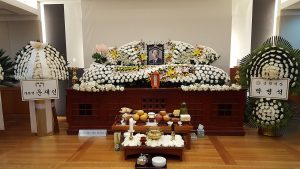The sudden death of Seoul Mayor Park Won-soon has shocked many in South Korea. In particular, reports that one of his female secretaries had lodged a complaint with police alleging sexual harassment over an extended period is troubling many of his supporters, as Park built his career as a reform-minded politician and self-described feminist.
However, Park’s fellow politicians affiliated with the ruling Democratic Party of Korea (DPK) have an additional concern. Park’s absence means the city needs a new mayor, and the by-election to decide who will take over the position is scheduled in April next year.
The post of mayor for the country’s second-largest city, Busan, is also vacant at the moment. Previous Mayor Oh Keo-don stepped down in April over sexual harassment allegations. The new mayor of Busan is also to be elected in April 2021.
The post of Seoul mayor is one of the most powerful positions in South Korea, with many of previous figures who held this job often considered promising presidential candidates. The Busan mayor position is also political important. The Busan mayor plays a major role in terms of consolidating votes from the city and neighboring regions, which are often a gamechanger for the presidential election (next due in 2022.) Both jobs are highly sought after by many ambitious politicians and political parties.
However, the Democratic Party of Korea will be hamstrung by the fallout from high-profile sexual harassment cases — and by a recent rule change that may bar it from even nominating candidates.
Park’s case is not the first time the party was caught up in the #MeToo movement. Oh, the former mayor of Busan, stepped down after a female public servant accused him of sexually assaulting her in his office. In his resignation speech, Oh admitted to “unnecessary physical contact.” And Ahn Hee-jung, the former governor of South Chungcheong province, is now serving a prison term of three-and-a-half years for raping his former secretary.
Park, Oh, and Ahn are all affiliated with the DPK.
The confluence of these cases brought a public relations disaster to the party. “The Democratic Party of Groping” is among the popular nicknames circulating online to mock the party amid the scandals.
Many are upset at the party, especially since the DPK has been actively promoting and advocating women’s right while claiming a “zero tolerance” stance against all types of sexual harassment.
On top of that, the party may also lose two more posts in Gyeonggi province and South Gyeongsang province, where Governors Lee Jae-myung and Kim Kyoung-soo may be forced to step down as well, depending on ongoing trials.
Lee is accused of violating the Public Official Election Act during his 2018 gubernatorial campaign. Kim was convicted of involvement in rigging online opinions for political purposes.
Added to the party’s headache, the DPK introduced a new rule in 2015 to prevent itself from nominating candidates for local elections where party-backed officials had to step down due to “significant wrongdoings” such as corruption. Now party members are reportedly divided over the new rule and have not reached an agreement on how to apply this to the upcoming by-elections.
Meanwhile, it is evident that the main opposition United Future Party (UFP) hopes to take advantage of the situation. Kim Chong-in, caretaker leader of the UFP, said on July 10 that his party would have to gear up for by-elections “equivalent to the presidential election.”
He urged party members to put their heads together to come up with the best strategy to produce a “good result” in the upcoming by-elections.
“We should figure out what we can offer to change public’s view and make them vote for us,” said Kim. He refrained from mentioning Park directly, a move seen by local media as carefully tailored not to alienate potential supporters during the current period of mourning.

































